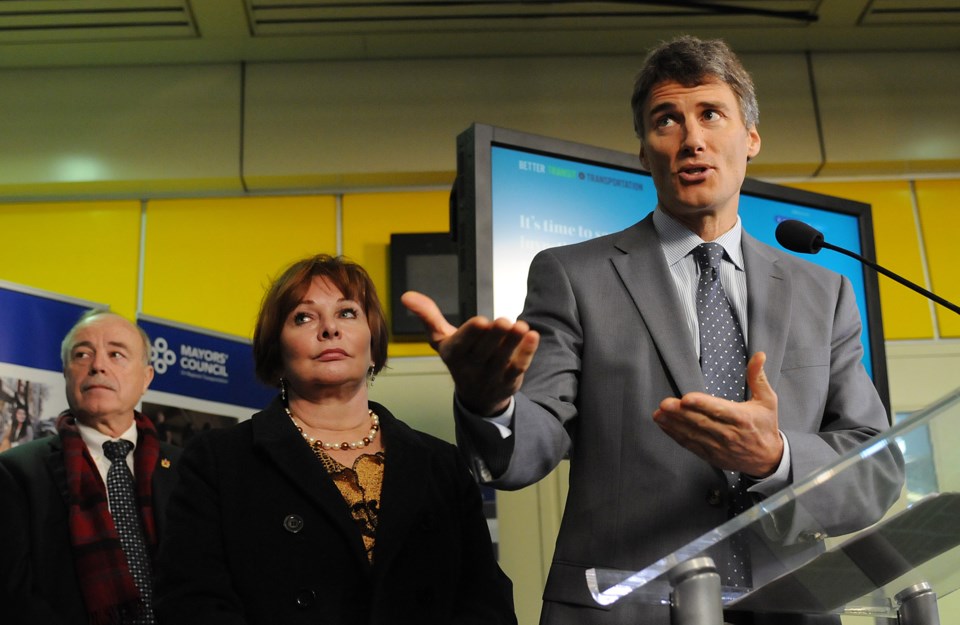Getting a yes or no answer out of a politician is like, well, trying to get a yes or no answer out of politician.
I tried Monday.
I was assembled with a gaggle of other media types at the Waterfront transit station downtown to listen to Mayor Gregor Robertson and six other regional mayors tell reporters why people should vote Yes in the spring plebiscite on transit and transportation.
This, of course, is the plebiscite that will ask Metro Vancouver residents whether they think it’s a good idea to pay another 0.5 per cent in the provincial sales tax to help pay for transit and transportation upgrades in the region. If you're on the voters' list, you should get a ballot mailed to you sometime in mid-March.
One after another, Robertson and the mayors from Surrey, New Westminster, Coquitlam, Port Coquitlam and the two Langleys looked into the cameras and implored people to support the tax hike to curb congestion in the region.
Electoral Area A director Maria Harris, who represents areas of Metro Vancouver that do not lie within an incorporated municipality including the University of B.C. lands and the University Endowment Lands, joined the mayors at the news conference.
You've probably read or heard the mayors' pitch, the common message being one million people will move into the region over the next 30 years and upgrades to transit, roads and bicycling and pedestrian infrastructure is a must to avoid Los Angeles-like gridlock. Heck, they say, it will only cost the average household about 35 cents per day for more buses, better roads and more transit options.
Let's get some more math out of the way before I get to that yes or no question I posed to Robertson. (Incidentally, the irony of me asking a yes or no question to a politician who wants residents to vote Yes to a Yes or No question is not lost on me.)
A 0.5 per cent increase to the existing seven per cent sales tax will translate to $225 million per year to help pay for the $7.5 billion plan which will be built out over 10 years.
But — and it's a big but — the plan's implementation relies heavily on money coming from the provincial and federal governments. While Transportation Minister Todd Stone has talked about "funding one third of major new rapid transit projects and the replacement of the Pattullo Bridge, provided that they fit within the provincial capital plan and strong business cases can be made for the investments," the feds have been silent.
So to the question I asked Robertson: Voters probably have a lot of questions. But can you actually guarantee if they vote Yes, that everything in the plan will be built and they'll get what's in the plan. Can you guarantee that?
Robertson: "This funding is specific to the operation and the capital from the local governments to make sure that this plan happens. We still need capital from the federal and provincial governments to build out some of the major projects like Broadway [subway] and Surrey rapid transit, and the [new] Pattullo Bridge. We want to ensure though that as local governments, we're putting our share forward and this plan funds the local needs. We're going to need additional funding from the provincial and federal governments to finish off all the big projects."
So was that a Yes or No on the guarantee?
Voters will have to decide.
twitter.com/Howellings



